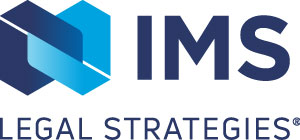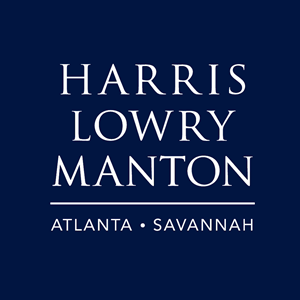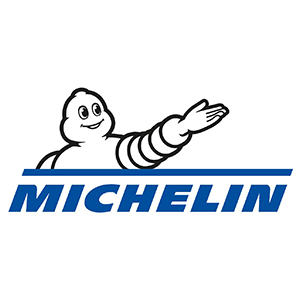Shegerian & Associates: Sanchez v. CarMax – A Frivolous Appeal, Ten Long Years; and the Follies/Downfalls of Forced Employee Arbitration
Legal Newswire
Apr 21, 2022
NEW YORK, NY/LOS ANGELES, CA – In 2019, our Legislature, along with Governor Gavin Newsome, enacted a law (AB 51 / Labor Code § 432.6) that moved to put an end to employer compelled arbitration of state law discrimination and labor code claims. In fact, the senate analysis recognizes this issue, along with the fact that fact that while: “Arbitration is a highly effective dispute resolution method when both parties chose it freely. It is far less successful when the more powerful party forces the other to accept the terms.” Stated otherwise: “The real impact of forced arbitration is not alternative dispute resolution, but claim suppression.”
Sadly, but not unexpectedly, a Federal District Court granted an injunction against enforcement until it can be decided whether said law is preempted by the Federal Arbitration Act. However, in September of 2021, the Ninth Circuit upheld most of the law, providing much needed procedural safeguards for employees.
The story however doesn’t end there, as the fate of this much needed prophylactic measure remains uncertain. In October 2021, the U.S. Chamber of Commerce’s petitioned for rehearing in banc. Despite some briefing, the Ninth Circuit issued an order deferring consideration until the U.S. Supreme Court rules on Viking River Cruises v. Moriana, which was argued on March 30, 2022. Until then, the preliminary injunction staying enforcement of AB 51 remains in effect.
Where does this leave us? If the Ninth Circuit’s ruling is upheld, without question, a PSA outreach is needed. This law does not work to invalidate arbitration agreements, but grants the right to California employees to refuse to sign a forced arbitration agreement by prohibiting employers from retaliating, discriminating, threatening, or terminating employees or applicants who refuse to waive their rights. The problem is that by the time most employees realize this (for example, when they consult or hire an attorney) it is too late. The agreement is already signed, and arbitration is commonly a forgone conclusion. Thus, a vocal and widespread add campaign is needed to educate California employees of their “right to refuse,” that they are protected when they do so, and that they have legal recourse if they are retaliated against.
Quite unfortunately, the cautionary tale of Sanchez v. CarMax (BC 482 027) – one of Shegerian & Associates’ oldest cases – illustrates the far too common pitfalls of arbitration well.
In 2011, Michael Sanchez filed a lawsuit for whistleblower retaliation and wrongful termination against CarMax. In short, Sanchez’ lawsuit claimed that he was terminated because of his reports that: (1) CarMax was re-selling cars returned by customers known to be dangerous, and (2) had fatal flaws in its acclaimed “125-point inspection” (whereby technicians were paid for 1.7 hours regardless of whether then spend 5-minutes with the vehicle or 3-hours) which again caused unsafe cars to be sold to unassuming consumers and placed on the road – all in the pursuit of profit over consumer safety.
CarMax (represented by Ogletree Deakins Nash and Smoak) moved to compel arbitration in June of 2012, Sanchez opposed, and the Court denied the motion in September 2012. Thereafter CarMax appealed, and the case was reversed and remanded back to state court in February 2014. Of note to attorneys – and unfortunately for employees – this opinion (Sanchez v. CarMax (2014) 224 Cal.App.4th 398) is a case much cited by employers in support of the enforceability of arbitration agreements.
After much delay – caused mainly by CarMax – the arbitration was held in March 2017 and March/April 2019, over two-weeks’ time. That summer, an interim award was issued in favor of Sanchez, which became final in October 2019. Thereafter, CarMax, unhappy with the award against it, moved to vacate said award on dubious grounds. Said motion was righteously denied in June of 2020. Thereafter, Judgement was entered in favor of Sanchez in the amount of $864,973.97.
But the story didn’t end there. Suffering from buyer’s remorse in having selected arbitration – after almost 10-long-years – CarMax appealed, perpetuating and aggravating its adjudicated retaliation against Sanchez. This vexatious appeal, and the previous years-long delay, fly in the face of the stated central purpose of arbitration, resolving disputes efficiently, economically, and expeditiously; the “stated” advantage espoused by proponents.
However, now, after almost 11-long years, the Court of Appeal – seeing through CarMax’ frivolous appeal – has affirmed Arbitration Award, bestowing the closure and vindication Sanchez has been long been awaiting. With post-judgment interest, CarMax is now on the hook for over $1,000,000.00.
About Shegerian & Associates:
Shegerian & Associates has won clients over half a billion in employment-based disputes and maintains a 98% success rate. We have offices in Los Angeles, San Diego, Riverside and New York.
Media Contact:
Rosanna Vargas
T: 310-860-0770





